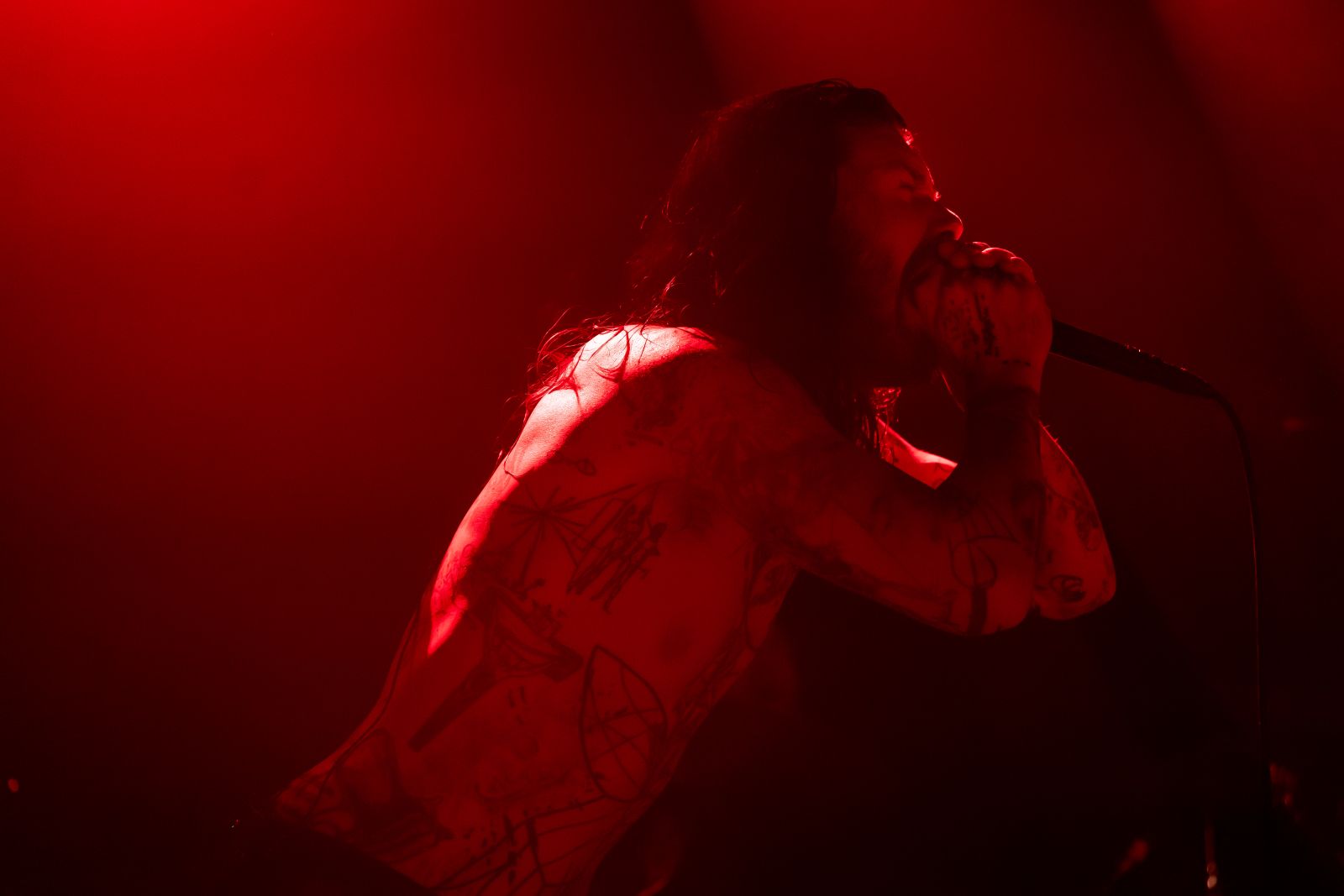David Weaver on Core Festival: 'If you’re troubled by what’s happening in the world, what better outlet than starting a band?'
While the heavy music scene has been associated with misogyny and aggression in decades past, Glasgow’s Core festival is at the forefront of a new era of inclusivity in the genre. Festival co-founder David Weaver tells Greg Thomas about the role political and social activism has played in shifting the dial

Core, Glasgow’s festival of heavy music, is notable for its progressive and diverse programming as much as for its celebration of squalling noise. It represents a new generation of punk and metal bands and fans who have turned against the aggressive, blokey trappings of the genre. That much becomes clear when speaking to festival co-founder David Weaver. But first, an anecdote.
The legendary Washington DC punk band Fugazi were famous for their rants against ‘slam dancing’ (what Brits call moshing). Singer Ian McKaye would often call out specific men from the stage, telling them to stop endangering other audience members (usually women), or simply that they were ‘aggravating us, sir’ (to quote McKaye during the band’s last performance, in London in 2001, which I attended as a teenager.)
Fugazi was part of a new wave of politically engaged post-hardcore punk bands also responsible for pioneering the ‘straight-edge’ movement (renouncing drink and drugs), and associated with a general culture of embarrassment about the white-male ego, debauchery and misogyny that characterised heavy guitar music across the 1970s and 80s. The fact that this critique was coming squarely from within white-male rock culture seemed neither here nor there in an era before the term ‘lived experience’ had much currency. What did women think of slam dancing? Who knows, we have saved them from it!
Fast forward to the present, and festivals like Core have embraced a far wider range of genres, genders and back-stories than was traditionally permitted for events of their type. ‘Whereas scenes like nu-metal and metalcore from 20 years ago felt very white, male, straight and angry, it now feels like metal, hardcore and everything in between is at the forefront of change,’ says Weaver. ‘Core definitely wants to showcase and celebrate that as much as possible.’
.jpg)
Let’s inspect the line-up, then. Grindcore group HIRS Collective, who take their name from a gender-neutral pronoun, are a revolving stable of musicians and activists fronted by trans woman Jenna Pup, pummelling out 30-second-long blasts against anti-LGBT+ bigotry. Helms Alee are a female-fronted stoner rock outfit whose drummer and singer Hozoji Matheson-Margullis has spoken about the ecological themes in their songwriting. CumGirl8, previous Core performers, are an all-woman post-punk quartet whose songs celebrate queer sexuality and kick against online misogyny. Guitarist Steve Brooks, of this year’s headliners Torche, is one of the few long-time openly gay musicians in metal and has previously brought together others in the same position to publicly discuss the joys and challenges of their career choice.
All of this correlates with some rerouting of the inner wiring of heavy music over the last 10 to 15 years. As Weaver puts it: ‘So many bands and scenes are embedded in political and social activism now. They go hand in hand I think; if you’re creating angry and progressive music, it’s natural that you’d be passionate about social causes. Likewise, if you’re troubled by what’s happening in the world, what better outlet than starting a band?’
That last sentence speaks to a persistent truism, though. The desire to pick up a musical instrument and make an extraordinary racket is always, at some level, going be an expression of anger. Anger is a masculine-coded emotion. For reasons lost in the millennia-old soup of mingled human nature and nurture, public expressions of anger are always going to attract men.
Perhaps what Core and the new scene around it represents is not just the need for new voices to define heavy music, but also a celebration of metal-and-punk masculinity itself as more vulnerable, emotionally open, and welcoming to others then ever before. Instead of cancelling the slam dance, come join us in the middle of it. ‘Heavy music is a really healthy and creative way of examining and dealing with the dark bits of life,’ Weaver concludes. ‘It’s way better to jump in a mosh pit or hit drums than it is to start a fight.’
Core, Woodside Halls and The Hug And Pint, Glasgow, Friday 12–Sunday 14 September; main picture: Kyle Burgess.